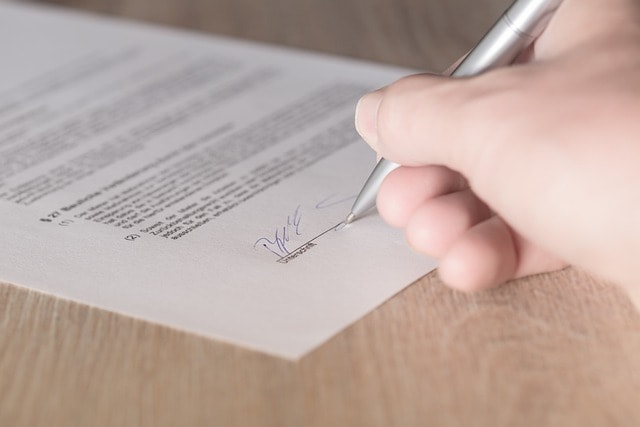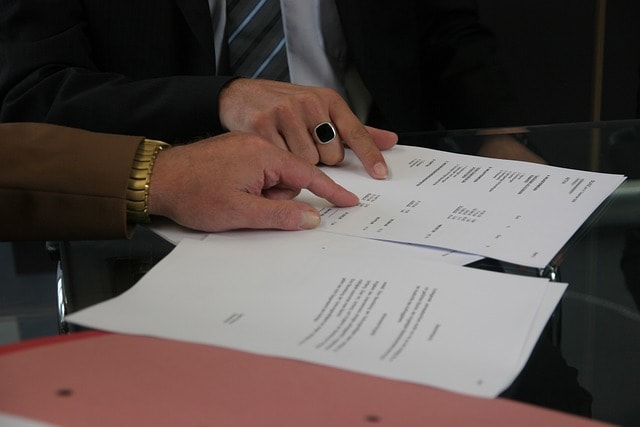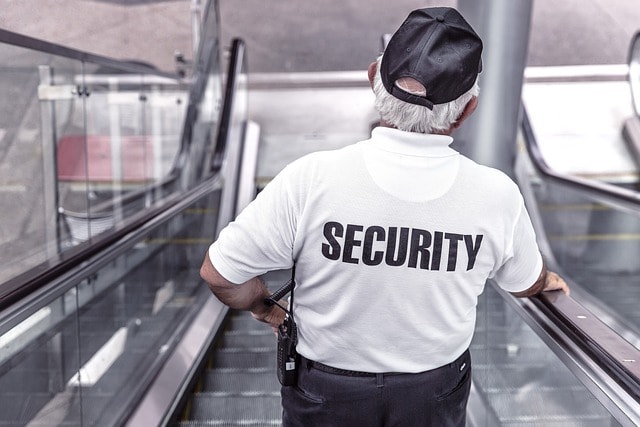Commercial Landlord Obligations: What Property Owners Need to Know

Introduction
Commercial real estate can be a lucrative investment, but it has significant responsibilities for landlords. Understanding your obligations as a commercial property owner is crucial for maintaining positive relationships with tenants, avoiding legal issues, and protecting your investment. This comprehensive guide explores the key obligations of commercial landlords, from maintenance and repairs to insurance requirements and lease negotiations. Whether you’re a seasoned property investor or just starting your commercial real estate journey, this information will help you navigate the complexities of commercial property management and ensure compliance with relevant laws and regulations.
Maintenance and Repairs

One of the primary responsibilities of commercial landlords is maintaining the property in a safe and habitable condition. While the specific obligations can vary depending on the lease agreement, there are some general guidelines to follow:
Structural Repairs
Commercial landlords are typically responsible for maintaining the structural integrity of the building. This includes repairs to:
- Foundations
- Exterior walls
- Roof
- Load-bearing walls
- Major plumbing and electrical systems
It’s essential to address these issues promptly to prevent further damage and ensure tenant safety.
Common Areas
Landlords are usually responsible for maintaining common areas shared by multiple tenants, such as:
- Lobbies
- Elevators
- Parking lots
- Landscaping
- Shared restrooms
Regular upkeep of these areas helps maintain the property’s value and keeps tenants satisfied.
HVAC Systems
Heating, ventilation, and air conditioning (HVAC) systems are often the landlord’s responsibility. This includes:
- Regular maintenance and servicing
- Repairs to major components
- Replacement of outdated systems
Ensuring proper HVAC function is crucial for tenant comfort and can help reduce energy costs.
Safety and Security

Commercial landlords must provide a safe environment for tenants and their customers. This includes:
Fire Safety
- Installing and maintaining fire alarms and sprinkler systems
- Ensuring proper fire exits and evacuation routes
- Complying with local fire codes and regulations
Security Measures
- Providing adequate lighting in common areas and parking lots
- Installing and maintaining security systems, if specified in the lease
- Addressing any safety concerns raised by tenants promptly
Building Code Compliance
- Staying up-to-date with local building codes and regulations
- Making necessary upgrades or modifications to meet current standards
- Obtaining required permits for renovations or major repairs
Insurance Requirements

Proper insurance coverage is essential for protecting your commercial property investment. Commercial landlords should consider the following types of insurance:
Property Insurance
This covers damage to the building and other structures on the property due to events like fire, storms, or vandalism.
Liability Insurance
Liability coverage protects you in case someone is injured on your property or if you’re sued for negligence.
Loss of Rent Insurance
This insurance can help cover lost income if your property becomes uninhabitable due to covered events.
It’s important to review your insurance policies regularly and adjust coverage as needed to ensure adequate protection.
Related Terms: absolute net lease, commercial property insurance, commercial property owners, residential tenants, commercial lease tips, commercial landlord responsibilities, residential landlords
Lease Agreements and Negotiations
Clear and comprehensive lease agreements are crucial for defining landlords’ and tenants’ rights and responsibilities. When negotiating commercial leases, consider the following:
Lease Terms
- Clearly outline the duration of the lease and any renewal options
- Specify rent amounts, payment schedules, and any annual increases
- Define permitted uses of the property and any restrictions
Maintenance Responsibilities
- Clearly state which party is responsible for specific maintenance and repair tasks
- Outline procedures for requesting and completing repairs
- Specify any tenant improvement allowances or restrictions
Insurance Requirements
- Define minimum insurance coverage requirements for tenants
- Clarify landlord and tenant responsibilities for different types of damage
Tenant Screening and Selection
Choosing the right tenants is crucial for the success of your commercial property investment. Implement a thorough screening process that includes:
- Reviewing business plans and financial statements
- Checking credit history and references
- Verifying proper licensing and insurance coverage
- Assessing the compatibility of the business with your property and other tenants
Taking the time to carefully screen potential tenants can help reduce the risk of payment issues or lease violations down the line.
Communication and Responsiveness
Maintaining open lines of communication with your tenants is essential for addressing concerns promptly and maintaining positive relationships. Respond to tenant inquiries and requests and keep them informed about any planned maintenance or changes that may affect their business operations.
Legal Compliance
Commercial landlords must stay informed about and comply with various laws and regulations, including:
- Fair housing laws
- Americans with Disabilities Act (ADA) requirements
- Environmental regulations
- Zoning ordinances
- Tax obligations
Working with a knowledgeable real estate attorney can help ensure compliance and protect you from potential legal issues.
FAQs
- What is the difference between a gross lease and a net lease?
- Are commercial landlords responsible for all repairs?
- How often should I review and update my lease agreements?
- Can I require tenants to carry specific types of insurance?
- What should I do if a tenant violates the terms of their lease?
Things to Know
- Commercial leases are typically more complex than residential leases and often require more negotiation.
- Regular property inspections can help identify maintenance issues before they become major problems.
- Building solid relationships with reliable contractors can help ensure timely and quality repairs.
- Proper record-keeping is essential for tracking expenses, maintenance history, and tenant communications.
- Staying informed about local market trends can help you decide lease terms and property improvements.
Conclusion
Being a commercial landlord comes with significant responsibilities, but with proper planning and management, it can be a rewarding investment. By understanding your obligations regarding maintenance, safety, insurance, and legal compliance, you can minimize risks and create a positive environment for your tenants.
Remember to stay proactive in property management, maintain open communication with tenants, and seek professional advice when needed. With these strategies in place, you’ll be well-equipped to navigate the challenges of commercial property ownership and maximize the potential of your real estate investments.
Glossary For Commercial Landlord Obligations
Screening commercial tenants: Process of evaluating potential business renters. Examples: Credit checks, business plan review, reference checks
Commercial landlords responsible: Legal and contractual obligations of property owners. Examples: Maintaining structural integrity, ensuring safety compliance
Maintenance and repair: Upkeep and fixing of property and its systems. Examples: HVAC servicing, roof repairs, plumbing maintenance
Net lease: Tenant pays some or all property expenses in addition to rent. Examples: Triple net lease (NNN), double net lease (NN)
Lease negotiations: Process of agreeing on terms between landlord and tenant. Examples: Rent amount, lease duration, maintenance responsibilities
Commercial real estate: Property used for business purposes. Examples: Office buildings, retail spaces, warehouses
Insurance coverage: Protection against financial losses for property and liability. Examples: Property insurance, liability insurance, loss of rent coverage
Lease terms: Specific conditions and details outlined in a rental agreement. Examples: Lease duration, rent amount, permitted use of property
Gross lease: Rent includes all or most property expenses. Examples: Full-service lease, modified gross lease
Fire safety: Measures to prevent and respond to fire emergencies. Examples: Fire alarms, sprinkler systems, evacuation plans
Lease agreements: Legal contracts between landlords and tenants. Examples: Commercial lease, retail lease, office lease
Tenant responsibilities: The renter’s obligations are outlined in the lease. Examples: Timely rent payment, maintaining cleanliness, reporting damages
Fire alarms: Devices that detect and alert occupants to fire. Examples: Smoke detectors, heat detectors, manual pull stations
Exterior walls: Outer structure of a building. Examples: Brick facades, curtain walls, siding
Security systems: Equipment and procedures to protect property and occupants. Examples: Surveillance cameras, access control systems, alarm systems
Air conditioning: Systems that cool and dehumidify indoor air. Examples: Central AC units, ductless mini-splits, evaporative coolers
Building codes: Regulations governing construction and maintenance of structures. Examples: Fire codes, electrical codes, accessibility requirements
Tenant: Person or entity renting a property. Examples: Retail businesses, office tenants, warehouse operators
Landlord: Owner or manager of a rental property. Examples: Individual property owners, real estate investment trusts (REITs)
Lease: Contract granting use of property for a specified period. Examples: Fixed-term lease, month-to-month lease, percentage lease
Screening process: Steps taken to evaluate potential tenants. Examples: Application review, interviews, background checks
Related Terms: Commercial Lease, commercial properties, commercial and residential leases, many commercial leases, commercial lease agreement, commercial tenant, commercial tenants













